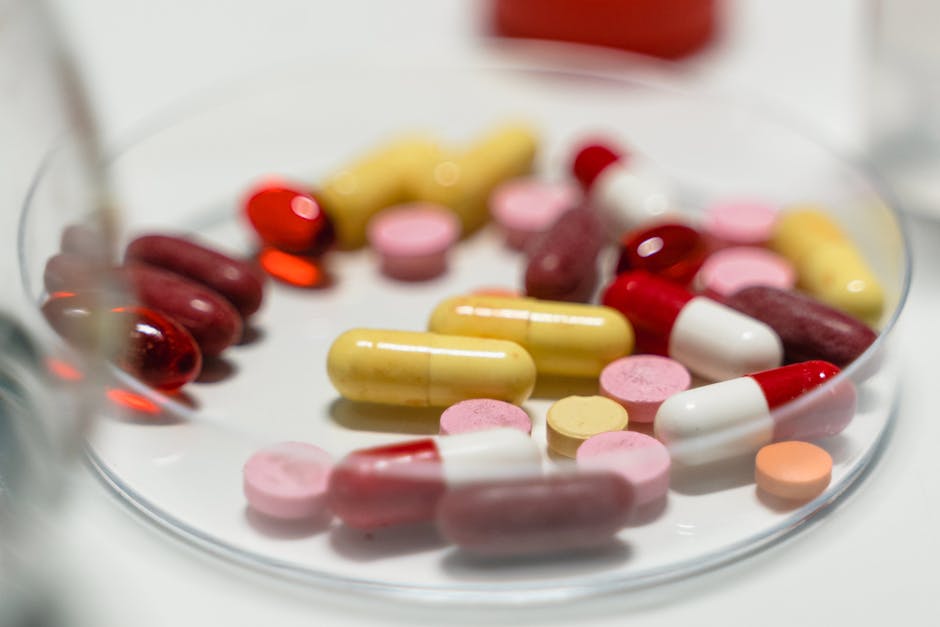Gut Health: How Antibiotics Affect Your Microbiome
Your gut is home to a complex community of microorganisms that play a crucial role in your overall health. These microorganisms, collectively known as the microbiome, are vital for digestion, immune function, and even mental health. However, the use of antibiotics can profoundly impact this delicate ecosystem. In this blog post, we will explore how antibiotics affect your microbiome, discuss their potential long-term consequences, and offer actionable tips to help maintain a healthy gut.
Understanding the Microbiome
The human microbiome consists of trillions of bacteria, viruses, fungi, and other microbes that inhabit various parts of the body, with a significant portion residing in the gut. These microorganisms are not just passive residents; they perform essential functions such as breaking down complex carbohydrates, synthesizing vitamins, and regulating the immune system.
Recent studies suggest that a diverse and balanced microbiome is linked to numerous health benefits, including improved digestion, enhanced immunity, and a reduced risk of chronic diseases. However, disruptions to the microbiome can lead to various health issues, making it essential to understand the factors that can alter this balance.
How Antibiotics Affect the Microbiome
Antibiotics are powerful medications designed to kill or inhibit the growth of bacteria, making them invaluable in treating bacterial infections. However, they do not discriminate between harmful and beneficial bacteria. As a result, antibiotics can have a profound impact on the microbiome, particularly when used frequently or inappropriately.
Reduction in Microbial Diversity
One of the most significant effects of antibiotics on the microbiome is a reduction in microbial diversity. Studies have shown that even a single course of antibiotics can significantly alter the composition of the gut microbiota, leading to a loss of beneficial bacteria and an imbalance in the microbial community.
For example, a study published in the journal Nature found that a week-long course of antibiotics could reduce gut bacterial diversity by up to 30%, with some changes persisting for months or even years. This reduction in diversity can make the gut more susceptible to colonization by harmful bacteria, increasing the risk of infections and other health issues.
Disruption of Gut Health
Antibiotics can also disrupt gut health by altering the balance of bacteria in the microbiome. This disruption can lead to the overgrowth of harmful bacteria, such as Clostridium difficile, which is associated with severe gastrointestinal infections. Additionally, changes in the microbiome can affect the production of short-chain fatty acids, which are essential for maintaining gut integrity and preventing inflammation.
Research from the Centers for Disease Control and Prevention (CDC) indicates that nearly 30% of antibiotics prescribed in the United States are unnecessary, highlighting the need for more prudent use to prevent adverse effects on gut health.
Long-term Health Implications
The impact of antibiotics on the microbiome can have long-term health implications. There is growing evidence that repeated antibiotic use may be linked to an increased risk of metabolic disorders, allergies, and autoimmune conditions. For instance, a study in JAMA Pediatrics found that children who received multiple courses of antibiotics during their first year of life were more likely to develop obesity by age seven.
Additionally, alterations in the microbiome have been associated with mental health conditions such as anxiety and depression. While more research is needed to fully understand the relationship between antibiotics and mental health, maintaining a balanced microbiome appears to be crucial for overall well-being.
Actionable Tips for Maintaining a Healthy Microbiome
While antibiotics can be life-saving, it’s essential to use them judiciously and take steps to support your microbiome during and after treatment. Here are some actionable tips to help maintain a healthy gut:
1. Only Use Antibiotics When Necessary
Before starting an antibiotic, consult with your healthcare provider to ensure it’s truly necessary. Avoid using antibiotics for viral infections, such as the common cold or flu, as they are ineffective against viruses.
2. Follow the Prescribed Dosage and Duration
If antibiotics are prescribed, follow the dosage and duration recommended by your healthcare provider. Completing the full course is crucial to effectively eliminate the infection and reduce the risk of antibiotic resistance.
3. Support Your Gut with Probiotics
Probiotics are beneficial bacteria that can help restore balance to the microbiome. Consider taking a probiotic supplement or consuming probiotic-rich foods such as yogurt, kefir, and fermented vegetables during and after antibiotic treatment.
4. Eat a Diverse and Fiber-rich Diet
A diverse diet rich in fiber can help promote a healthy microbiome. Include a variety of fruits, vegetables, whole grains, and legumes in your diet to provide the necessary nutrients for beneficial bacteria to thrive.
5. Avoid Over-the-counter Antibiotics
Some countries allow the purchase of antibiotics without a prescription. Avoid self-prescribing antibiotics, as improper use can disrupt your microbiome and contribute to antibiotic resistance.
Conclusion
Antibiotics are powerful tools in fighting bacterial infections, but their impact on the microbiome cannot be overlooked. Understanding how antibiotics affect your gut health and taking proactive steps to support your microbiome can help mitigate potential risks and promote overall well-being. By making informed decisions about antibiotic use and adopting lifestyle habits that support gut health, you can nurture a balanced and resilient microbiome for a healthier future.
Share this content:
About The Author
Discover more from J and J Fitness
Subscribe to get the latest posts sent to your email.



